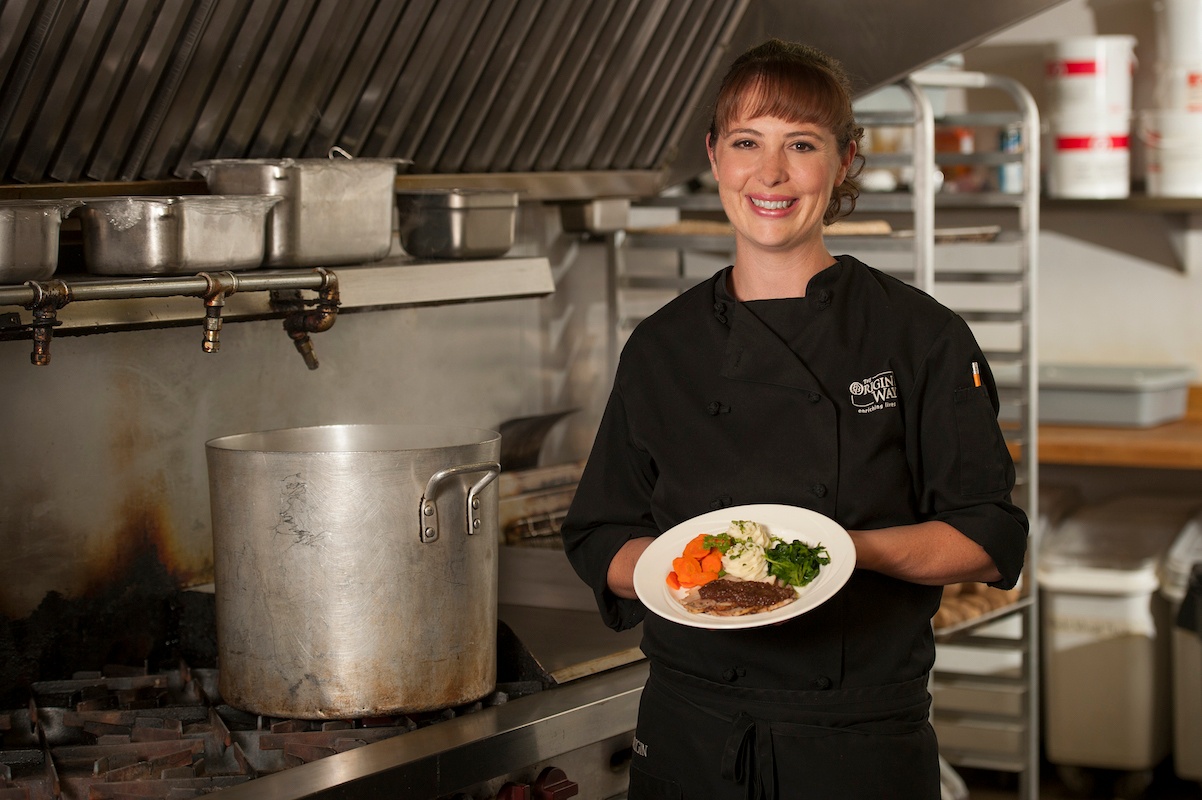 As we age, our nutritional needs, appetite and food behaviours start to change. Our metabolism begins to slow down which increases the risk of developing chronic conditions such as diabetes, heart disease, and osteoporosis. Additionally, as our metabolism slows down, the need for calories declines while the need for certain nutrients starts to increase. Healthy aging starts with healthy eating! Here are 3 simple practices to promote healthy eating for seniors:
As we age, our nutritional needs, appetite and food behaviours start to change. Our metabolism begins to slow down which increases the risk of developing chronic conditions such as diabetes, heart disease, and osteoporosis. Additionally, as our metabolism slows down, the need for calories declines while the need for certain nutrients starts to increase. Healthy aging starts with healthy eating! Here are 3 simple practices to promote healthy eating for seniors:
1. Look for Essential Nutrients:
It is important to select foods that have the key nutrients our bodies need as we get older. A well-balanced plate should look like a rainbow with a variety of brightly coloured foods! A complete, healthy meal should include a lean protein (seafood, eggs, beans), fruits and vegetables, whole grains (brown rice or whole wheat pasta) and low-fat dairy.
Remember to read the Nutrition Facts label! The healthiest foods are always whole foods, but when purchasing any packaged foods, be a smart shopper. Focus on items that are low-fat, contain no added sugars and are low in sodium.
Some of the key nutrients to focus on for those over 50 are:
- Protein – This helps to build muscle, and keeps skin, nails and hair healthy.
- Fibre – Can help maintain blood sugar and cholesterol levels and helps to regulate the digestive system.
- Calcium – Essential for healthy bones and osteoporosis prevention.
- Vitamin D – Helps the body to absorb calcium and keeps calcium levels balanced.
- Vitamin B6 – Assists in the production of protein, which helps to build red blood cells, make hormones, and fight infections.
- Vitamin B12 – Supports a healthy nervous system and helps produce red blood cells. Not enough Vitamin B12 can result in anemia, and over time, nerve and brain damage.
2. Stay Hydrated:
Water is a key nutrient too! Dehydration is common among seniors due to certain medications, decreased kidney function or a decreased sense of thirst, and illness. Seniors can stay hydrated throughout the day by consistently drinking small amounts of fluids. Tea, fat-free milk and 100 percent juice are good alternatives to water but remember to keep fluids with sugar to a minimum (unless otherwise instructed by a doctor).
3. Consider Supplements:
Fruits and vegetables are the best way to get key nutrients, but sometimes it may not be enough. A daily multivitamin or mineral supplement can help the body get the nutrients it needs, especially for Vitamins D, B6 and B12.
Although supplements can provide vitamins and minerals, they do not provide other significant nutrients such as carbohydrates, fats, and proteins. Before starting any kind of supplement regimen, it is important to speak with a health care provider to make sure it is the right choice.
Origin Active Living communities understand the importance of healthy eating for seniors and we are committed to the highest level of senior nutrition. We offer our community members delicious meals and snacks that are, both, balanced and nutritious. Visit our website to learn more about our dining options and what our Origin Active Living communities can offer the senior in your life.

